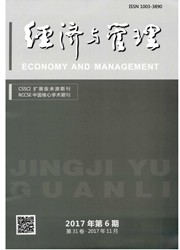

 中文摘要:
中文摘要:
出于总结跨国公司成功经验为我国企业走出去提供经验借鉴的目的,分析拜尔(杭州)公司实践转移中的管理控制机制。研究发现,决定实践转移是否成功的最根本因素是使员工认知克服制度距离的影响,情感导向的正式控制风格和意在促进员工认知的外派人员及社会化安排是克服制度距离的有效途径,但情感导向的控制风格应该有足够的考核机制做补充。
 英文摘要:
英文摘要:
This paper intent to analyze the managerial control mechanisms of Bayer (Hangzhou)Subunit to provide experiences for Chinese companies. The results show that the fundamental element for successful practice transfer is staff recognition to overcome the impact of institutional distance. Expatriate employees and socializing activities to promote local staff recognition are effective ways to overcome. The significance of this study lies in the in-depth analysis of formal control mechanisms on overseas subsidiaries, as well as offering models for analysis and reference on overseas subunits" formal control to Chinese multinationals.
 同期刊论文项目
同期刊论文项目
 同项目期刊论文
同项目期刊论文
 期刊信息
期刊信息
